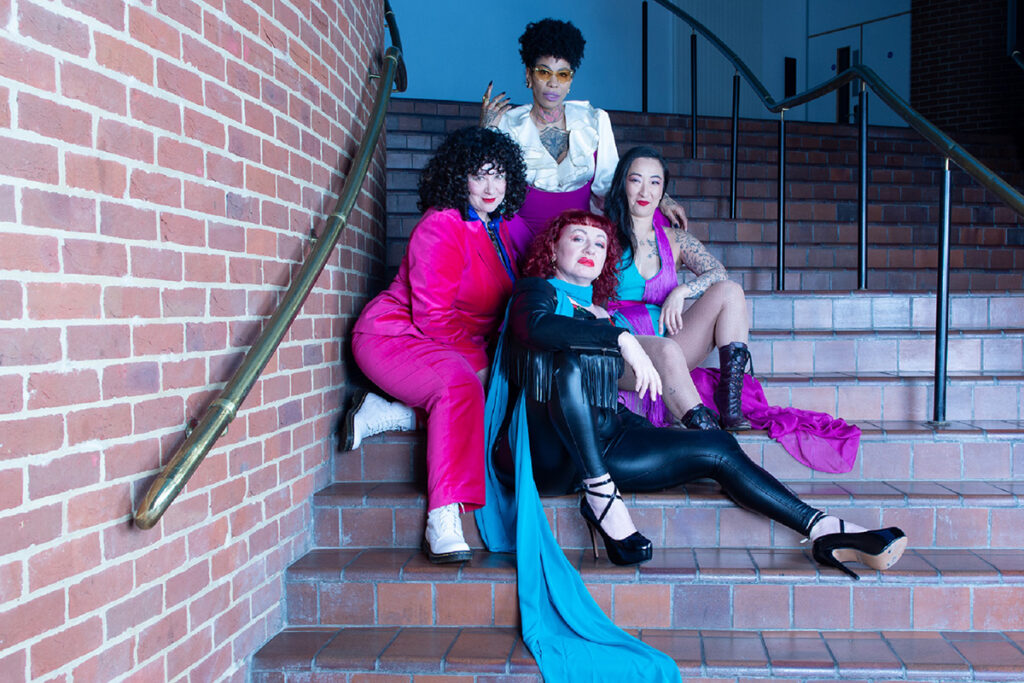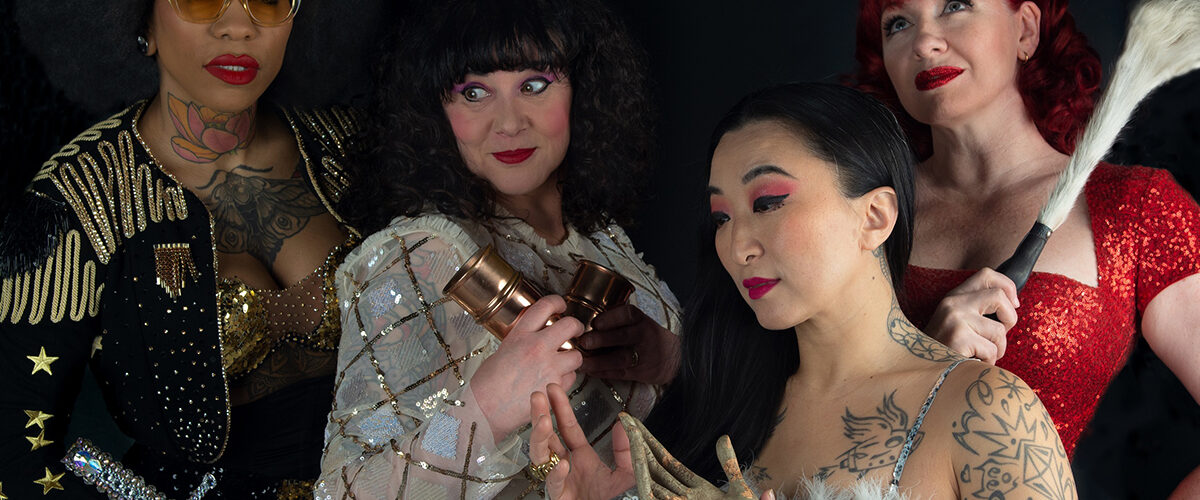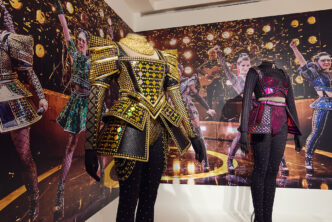“Its kind of like a TED talk with people flying around and doing fire,” laughs Marisa Carnesky describing SHOWWOMEN, her new performance work which comes to The Lowry this weekend.
“It’s dynamic, it takes you on a journey, we make you laugh, and we make you cry, then we make you shocked and have a moment of wonder.”
Carnesky is a pioneer in British performance art, her award winning career has spanned over two decades, her live performances have been appreciated and lauded by critics and audiences alike worldwide. As well as her live performances she has long been involved in the education and tutelage of young people who wish to be in the industry. She currently works as a Programme Director for a Contemporary and Popular Performance course at Rose Bruford College and is on the road with her latest production ‘SHOWWOMEN’ which sees her collaborate with Veronica Thompson (Fancy Chance), Livia Kojo Alour and Lucifire.

“We’re not making a play with characters where we’re playing other people. We’re playing ourselves, and then exploring through our skills, and through the stories of people in the past themes about what it is to be a woman,” Marisa tells me. Her work has long centred around themes of womanhood, from her first full-length solo show, ‘Jewess Tattooess’ to her more recent offering ‘Dr Carnesky’s Incredible Bleeding Woman’ but this looks to be the jewel in her crown as she tackles the subject in the very industry she had such a hand in growing.
“We kind of created this culture, the whole generation of us coming out of the 90’s brought this kind of visual cabaret and movement based cabaret into the mainstream.
“When I graduated, there wasn’t really much of a cabaret scene in the UK at the time, there wasn’t the culture that we have now, the burlesque and circus culture. There wasn’t a lot of places where you could do visual performing if you weren’t a stand-up comic. Trying to make a living was really hard, I was performing in nightclubs and then working a little bit in theatre freelancing.”
These times speak to a true passion for her craft as she persevered without the promise of a stable income in a market that was small at best, the familiar tale of the artist struggling to stay afloat doing what they truly love is as relevant as ever and as with many of these stories, adaptability is paramount. Marisa tells me this a trait that she shares with most of her counterparts, “I think people don’t realise that we all move between genres. We all kind of found our way doing a bit of theatre, doing a bit cabaret, doing a bit of Burlesque, a bit of comedy, a bit of teaching. It all crosses over, you have to be a jack of many trades.”
As well as adaptability this is a culture that promotes diversity, camaraderie and community and this is reflected in the team that has helped SHOWWOMEN come to life, “I have my biological family, but my circus family, my performance family are also really important to me. In a way they’re family too, the women in this show, we’ve been working together for nearly 20 years in festivals and different shows, we didn’t meet yesterday, we have shared stories, and we look out for each other.” Marisa believes that this level of collaboration between women could be a reflection of something much bigger. “Under patriarchy, traditionally we’re lead in a culture which is often about division. And perhaps matriarchy would be more about inclusion, a more collaborative sense of spectacle.
“If P.T. Barnum was a spectacular patriarch, then what would a spectacular matriarch be? Who would she be and what would she bring to the culture and to the community?”
The idea behind SHOWWOMEN seems to be about controlling the narrative, asking questions, and trying to come up with answers for them. There is a desire to flip the script, it is that sentiment that the name for the show itself is derived from. “We’re kind of saying that that nobody is a show girl if they’re over 18. The phrase is used to sexualise women into this identity of the girl, and I mean a lot of performers love it, there’s a kind of romance to the show girl, but we’re saying as we move into our 40s and 50s, we might need to change the script,” Marisa tells me passionately. “We’re show women, we’re actually now the ones running the businesses, we can do all these extraordinary skills and performances for as long as we want to. And yes, we might still be sexual, but in a more self-possessed way, where it’s less about us being in a line-up of identical bodies and It’s more about us having a voice, being great theatre makers or having great abilities to make spectacular performances.”
This piece looks to serve as more than mere entertainment and this shouldn’t come as a surprise as the brainchild of someone who is not a mere entertainer. The show has its inspirations in Marisa’s punk, anarchic spirit, and political performance art of the past. So often in her work the questions arise of why couldn’t I and why shouldn’t I marry, under the umbrella of what if I do? There’s the hope that the answer points to a level of social change and the questions raised in this piece are no different. “In my mother’s generation you kind of disappeared as you got older,” Marisa adds. “This is about saying, what is the midlife woman? What does she do on stage and what does she represent? I think it’s really important that women with physicality are still out there being physical in midlife. Let’s find out what that’s like, let’s give it a go, because I’m not getting off the stage. Why should I?”
Showwomen is at The Lowry on 16 March 2024. Age guidance 16+





